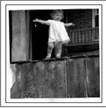Smarts/Intellect/Intelligence
It all started early yesterday morning with a meme my son sent me along with the comment that he felt very targeted. It described an aspect of his adult personality then said it assumed he was a fan of a set of children’s books—and I can vouch that he read every one of those books multiple times, even owns some of them to this day. The books were the “Eyewitness” series published by Doring Kindersley. This launched a discussion of why consumption of those books as a child would allow such an accurate assessment of a person as an adult. My son’s guess is that it would be a curious child looking for facts about the world who would be attracted to those books, then the immersion in those books would render the child “grounded in the natural order of things.” My guess was that smart kids are attracted to those books and then grow up even smarter having read those books. Pretty close to the same thing, right?
This morning it was reig-nited by something I saw on Instagram, a person recalling something a professor had said, “If you did something like going to the supermarket and experienced it fully without the goggles of habit and categories you would go crazy with pure sense and joy.” That brought back to mind an opinion article I had read a couple of weeks ago about travel being totally worthless and pointless. It is safe to say I am diametrically opposed to that person’s opinion, at least for myself. One of the greatest benefits of certain kinds of travel is that it strips away your goggles of habit, heightening your senses and enabling you to experience life like a curious child would.
I started looking up definitions of intellect and intelligence, then moved on to various articles comparing the two. Boy, did I learn a lot! Before this morning I had it all wrong. As it turns out, intelligence is “the ability to acquire and apply knowledge and skills,” while intellect, a component of intelligence, is “the faculty of reasoning and understanding objectively.” (Both definitions from the Oxford Dictionary.) The interesting thing is some theories of intelligence/intellect divorce it completely from things like emotion, intuition, and relationships, while some intertwine all of the above. One theory says true intellect is the ability to use the acquired knowledge and skills to decide a course of action that is emotionally and socially acceptable.
I also learned about a type of psychotherapy called Intellectualization, where intellectual focus is used to deal with emotional disturbances and issues. I recognized that this is the approach I take when I am being my own therapist, which I do daily. I will have to write another column about that.
My aim here was to drag you down this rabbit hole with me. I will be stewing over this for several days, I am sure, and I would sure like to think there are others out there thinking about it, too!

